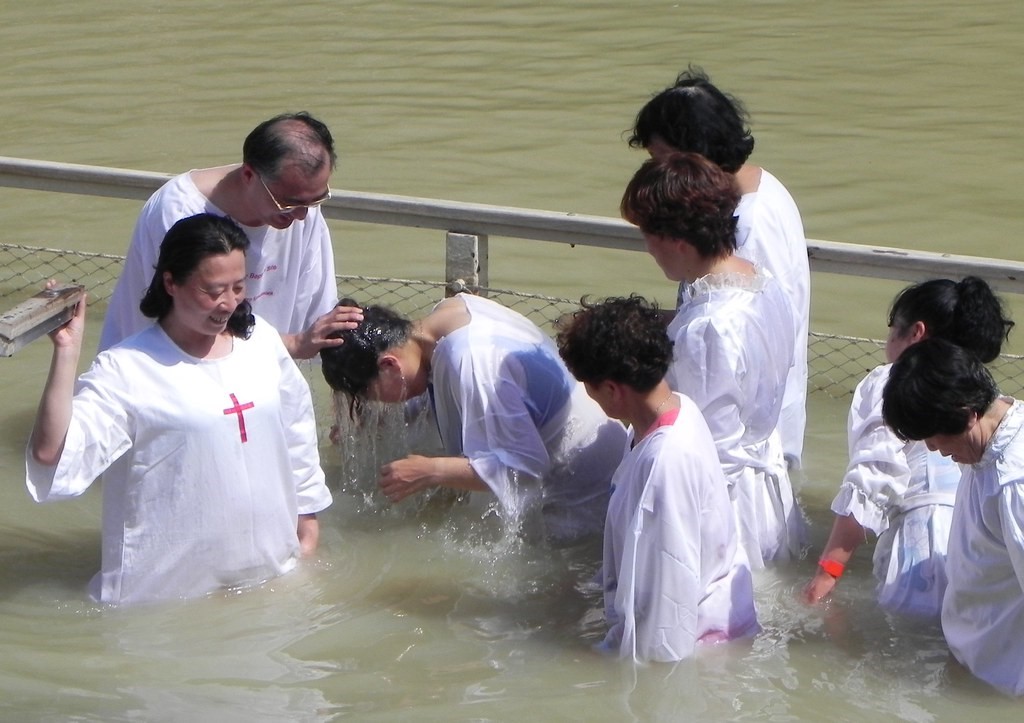
“May our sins be washed away” is an expression I have heard but never used, so I was surprised when Progressive Christianity, a theologically liberal organization, used it in a recent newsletter title.
I have been an Episcopalian my entire life, but my wife and I have attended Irvine United Congregational Church for the past twelve years.
I’m not big on the concept of washing away sins—what does that even mean? Is it about baptism? When I was baptized at three weeks old, a priest said something about my being cleansed from sin and born again. Obviously, that didn’t work. I still sin, which is the translation of an Ancient Greek word that means “missing the mark.”
Do the members of some churches try to literally wash their sins away? Why does climbing in a big tank or going to the beach wash away sins? If you watch the six o’clock news, I think you’ll agree that washing doesn’t seem to be very effective.
I’ve also heard folks talking about washing away sins in Jesus’s precious blood, but that sounds hokey, even barbarous, and is not something I want to do. Here’s my big question: where do they get Jesus’s blood?
So, I googled “sins, washed away?” I found one article that mentioned that Numbers 8:7 describes the consecration of the Levites (the Jewish tribe that was in charge of Temple maintenance and worship) by sprinkling purifying water on them, shaving their entire bodies, and washing all their clothes. Is this what washing away their sins means?
This article also suggested that sin makes us dirty, so we are baptized to wash away our “dirt.” From what I’ve seen in life, sin seems to come back in a nanosecond.
Some religious folks love to remind us, ad nauseam, that we are born into the world as sinners. This always confuses me. Supposedly, we are made in the image of God (isn’t that good?), but before we take our first breaths, we become nasty sinners. That makes no sense, which is why I’m a huge opponent of original sin and a strong proponent of original goodness.
As Jewish Followers of the Way, Paul, John, Peter, and Titus suggested that Jesus’s horrendous death replaced the traditional sacrifice of a Passover lamb and that his blood (collected from his crucifixion, I guess) wiped away people’s sins for the next two thousand years. That’s about as silly as theology can get.
Jesus as a sacrificial lamb is almost as nonsensical as the moral philosophy of a couple of my Roman Catholic fraternity brothers. They went to confession every Friday to cleanse themselves of their sins so they could start sinning all over again that weekend. Huh?
I know I often miss the mark, but my theology says I have to take full responsibility for my actions. Water, blood, and forgiveness from NoOneUpThere allow one to avoid the pain of cleaning up one’s messes.
I know only one way to deal creatively with sin: recognize when we do wrong to ourselves or others, take responsibility for it (never easy), and try not to repeat it.
Have you had your sins washed away? If so, please share how you accomplished this! If not, please share how you deal with missing the mark.
Image courtesy of young shanahan (CC BY 2.0)
I use to feel guilty because I shared all those thoughts you have mentioned here. It made no sense to me from the age of 7 when in Catholic Sunday school I was told to believe in what I felt was the unbeliveable. It wasn’t until I met you that I started to realize I needn’t feel so uncomfortable with my doubts.
Thank you, with love, joyce
Well said Margie.